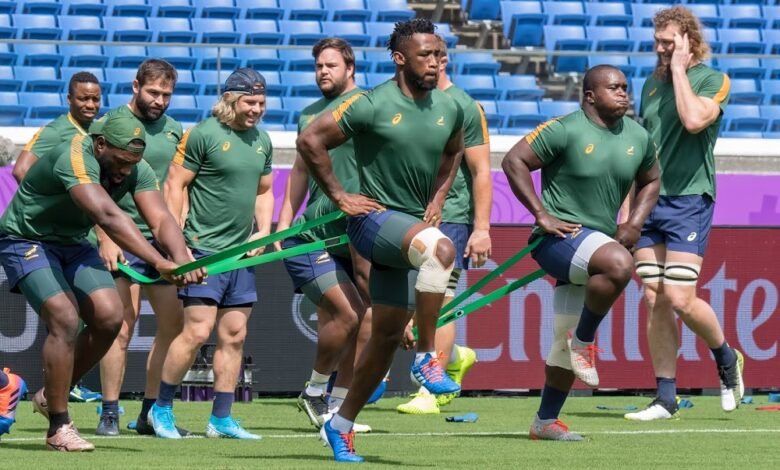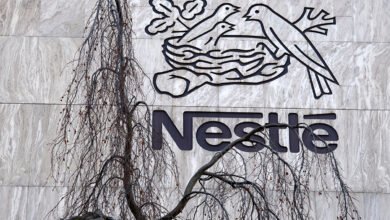
Springboks Equity Battle: New Bidder Proposes Fan Involvement
South Africa’s Springboks, one of rugby’s most prestigious teams, faces a crucial moment as a new rival bidder proposes to reshape team ownership. The deal could introduce a groundbreaking fan-stake model that alters the traditional ownership structure. Recent talks about private equity investment in South African rugby led to this rival bid, which would give supporters direct ownership of the national team’s commercial rights. This bold proposal challenges current ownership frameworks and could alter how Springboks’ players and management connect with their dedicated fans. The future of South African rugby’s commercial world now depends on how stakeholders review this unprecedented chance.
Revolutionary Fan Ownership Model
A pioneering group has come forward with a game-changing plan for the Springboks’ commercial rights. Four major South African financial institutions have joined forces to bid for up to 40% of the team’s commercial rights through a special purpose vehicle. The group consists of:
- AltVest Capital Ltd.
- EasyEquities
- 27four Investment Managers Ltd.
- RainFin Ltd.
The group’s fresh approach aims to open up ownership of South Africa’s beloved rugby team to everyone. Their plan is simple yet powerful. They want to list the special purpose vehicle on the Johannesburg Stock Exchange. This would let fans buy shares for just R1 through the EasyEquities platform. The idea matches their vision to welcome everyone – from everyday fans to big investors.
The group’s letter to SA Rugby values these commercial rights at about R6.7 billion. Their proposal has room for different types of investors, from institutions to venture partners and high-net-worth individuals. The plan also features a debt instrument to attract fixed-income investors, showing a detailed approach to financial planning.
AltVest Capital’s CEO Warren Wheatley highlights their plan’s inclusive nature. He believes everyone should have a chance to own part of the Springboks – “from a car guard at Loftus to an institutional investor in Sandton”. This fresh take on sports ownership could reshape how professional rugby teams manage fan participation.
Financial Impact Analysis
South African rugby’s financial state shows room for growth. SA Rugby earns about AED 110.16 million yearly from 48 partnership deals. The All Blacks make AED 275.40 million with fewer deals, which shows SA Rugby’s potential for commercial expansion.
A consortium values the Springboks’ commercial rights at AED 1376.98 million. This number matches Ackerley Sports Group’s earlier assessment of total commercial rights.
The proposed funding structure has three main sources:
- Strategic collaborations through ordinary shareholding
- Listed debt instruments for institutional investors
- Sponsorship contributions that enable corporate-funded player equity
SA Rugby needs investment right now. Executives admit the organization has “zero reserves” after COVID-19. The Springboks brand makes up 90% of SA Rugby’s revenue. This shows why maximizing its commercial value matters so much.
SA Rugby wants to double its sponsorship revenue to AED 275.40 million by 2027. The consortium suggests new financial instruments listed on the JSE. These will improve equity returns and provide stable financing. This plan helps close the gap between South African rugby and other countries. New Zealand Rugby’s recent equity deal worth AED 5.51 billion proves this point.
Stakeholder Perspectives
The latest vote on private equity investment in South African rugby has exposed deep rifts among the core team. The Ackerley Sports Group (ASG) proposal failed to get the needed 75% approval threshold when seven out of thirteen member unions voted against it. The Lions, Bulls, and Sharks emerged as the main opponents of the deal.
The member unions worried about several aspects:
- Changes to home international games revenue mechanisms
- Proposed commission structures
- Governance and ethics issues
- How it would affect rugby development programs
SA Rugby President Mark Alexander acknowledged these concerns but emphasized the organization’s steadfast dedication to future growth. “Our goal remains to secure a sustainable and prosperous future for South African Rugby,” he stated. The rejection has sparked talks about different approaches, and stakeholders now ask for more transparency in future proposals.
Former Springbok Schalk Burger Sr. spoke up for smaller teams’ interests: “For us, it’s about SA Rugby and the small teams. How do they get help in the future?”. His words echo wider concerns about supporting grassroots rugby development effectively.
The Portfolio Committee on Sports, Arts, and Culture has stepped up its review of these developments. Chairman Joe McGluwa stressed the need to evaluate carefully: “Any deal can seem good but must be truly right”. This additional oversight makes the discussions about the Springboks’ commercial future even more complex.
South African rugby faces a crucial turning point as different visions compete to shape the Springboks’ future ownership structure. A rival consortium has put forward a R6.7 billion proposal that reimagines sports team ownership through a fan-stake model. Their approach gives fans from all economic backgrounds a chance to own part of the team and creates new commercial opportunities that could accelerate SA Rugby’s growth.
The responses from key stakeholders show how challenging it is to balance rugby traditions with state-of-the-art ideas. Member unions have raised important points about money distribution and development programs that go beyond just financial gains. Their input has sparked meaningful discussions about protecting grassroots rugby while pursuing commercial success.
This ownership bid could revolutionize how sports teams are managed globally. A successful implementation would make South Africa the frontrunner in democratic sports ownership and create a blueprint for other national teams. The final choice will shape not only the Springboks’ business future but also transform how professional sports teams connect with their supporters over the next several years.






